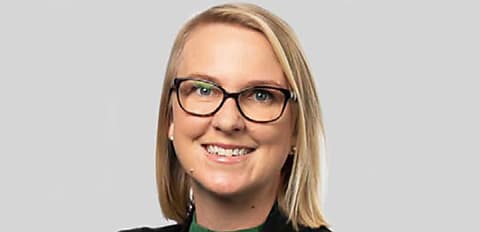Bank of Queensland (BOQ: ASX) released its half-year results for the financial year ended 1 January 2023, which reflected below system lending growth (0.6 per cent), up $177 million. The easing in mortgage growth can be seen when compared to the same period last year when it reached $2.5 billion in growth.
The results noted the bank’s decision to “prioritise margin and economic return” over volume growth in the competitive market.
According to the results, BOQ retail and business brands contracted by $0.2 billion or 2 per cent on 2H22, on the back of a “competitive refinancing market”, a heightened focus on retention, and a shift to variable rates.
The full mortgage book, including BOQ, Virgin Money Australia, ME Bank, and BOQ Specialist, closed the half year at $63.6 billion, slightly up on its end-of-year results FY22.
The recently acquired ME Bank housing portfolio growth slowed, increasing $0.3 billion or 2 per cent on 2H22. However, it noted an increase in conversion rates due to “simpler processes and quicker turnaround times”.
Speaking on the results during a webcast (Thursday, 20 May), BOQ group chief financial officer Racheal Kellaway said: “We made the deliberate decision to slow our growth and focus on where we could achieve appropriate returns on business lending while we observed a slowdown in the system.”
Indeed, recent data from the Mortgage and Finance Association of Australia’s (MFAA) latest Industry Intelligence Service (IIS) report, revealed major bank market share grew by 6.0 percentage points in the September 2022 quarter, up from 41.2 per cent on the June 2022 quarter to 47.2 per cent, as competition increases in the lending space.
The bank said it expects increased competition in mortgage lending to continue.
Loan impairment expenses marked $34 million compared to a credit of $15 million the year prior, driven by continued uncertainty around future economic impacts of inflation and interest rate pressures and house price declines.
Ms Kellaway said while they have started to see a small increase in arrears across the housing and business portfolios, this was off a very low base and remained under long-term historical averages.
“We’re certainly very alert to the fact that arrears is up ticking up but we’re not at this point alarmed,” Ms Kellaway said.
In addition, the results showed growth in the third-party channel had slowed to $0.2 billion, or 6 per cent, as settlement volumes reduced by 16 per cent.
BOQ brokers lodged 2,700 applications in 1H23, compared to 4,000 in 1H22.
Brokers have originated 45 per cent of BOQ’s portfolio and 56 per cent of flow for the half.
Savings lift by almost 30%
Ms Kellaway noted the mortgage portfolio was well placed with customers having high levels of household savings and repayments reflecting a more normalised long-term level.
The results showed savings and investment accounts increased by $3.6 billion or 27 per cent on 2H22.
However, transaction accounts contracted by $0.6 billion or 20 per cent on 2H22, while mortgage offsets declined by 1 per cent, reflecting a move from “at-call products to higher yielding term deposits”.
“We are confident in the quality of our portfolio, which has seen five consecutive halves of reduced exposure in high DTI and high LVR bands,” Ms Kellaway said.
“Both measures are stronger than industry averages and mean we have more resilience to higher interest rates and lower house prices.
“However, we also understand that some of our customers are or will face challenging financial times with higher interest rates and higher cost of living impacts. We are able to continue to support them through this.”
Loan book propped up by commercial lending
The commercial lending portfolio grew by $277 million driven by lending to SME businesses in 1H23, which marked a 5 per cent increase in ‘system growth’ (compared to the Reserve Bank of Australia’s lending data over the same period).
According to the results, SME lending grew $183 million, which was 7 per cent above system, however, growth had fallen compared to the last two half-year results, where it came in at $223 million in 2H22 and $740 million in 1H22.
Asset finance grew by $232 million in 1H23 up from $197 million in the previous half-year results.
Growth in asset finance was driven by the core equipment finance business, along with the structured and dealer finance businesses as COVID-19-related supply-chain issues eased.
Given the increased competition and easing in new mortgage lending, the bank outlined its focus was around supporting customers transitioning from fixed to variable, mortgage process simplification, and digitisation and improving customer experience.
BOQ reported net profit after tax for the first half of FY23 of $4 million, which marked an almost 100 per cent fall compared to the first half of FY22, partly due to two “large one-off non-cash items”, including integration costs of ME Bank.
[Related: Non major bank announces new CEO]

